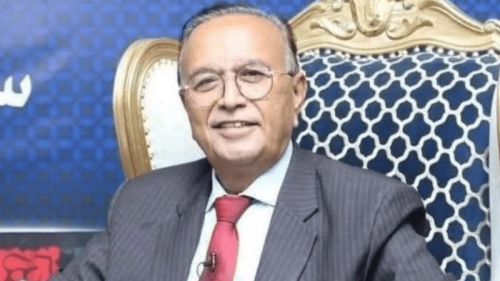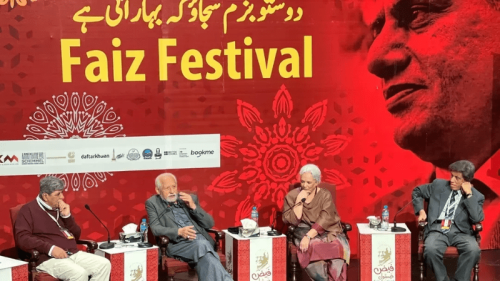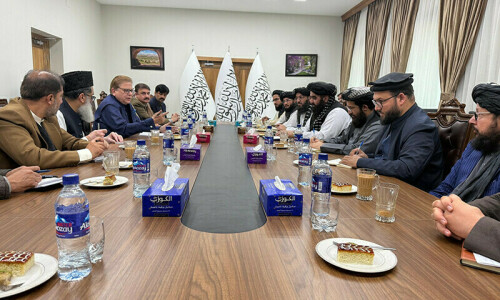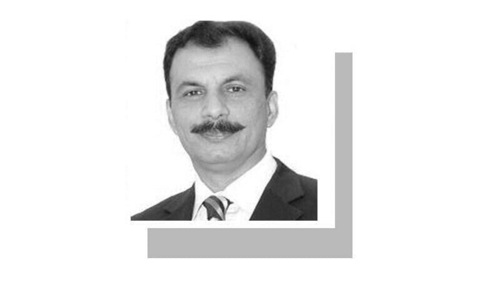
• Rebel leader holds talks to form new govt
• West calls on HTS to shun violence before diplomacy
• Israel launches over 100 airstrikes
• Europe stops processing Syrians’ asylum pleas
DAMASCUS: The leader of the rebels who unseated Bashar al-Assad to take control of Syria, on Monday, began discussions on transferring power, a day after seizing power.
But as world capitals look to engage with the new rulers, many have expressed concern over violence, as well as the security of chemical weapons in the country.
After a day of celebration on Sunday, life seemingly returned to Damascus on Monday, with traffic returning to streets and people venturing out after a nighttime curfew, but most shops still remained shut.
Assad’s Prime Minister, Mohammed Jalali, told Al Arabiya TV he had agreed to hand power to the Salvation Government, an administration based in a small pocket of rebel-held territory in northwest Syria.
He said the handover could take days to carry out.
The main rebel commander Ahmed al-Sharaa, better known as Abu Mohammed al-Golani, had met overnight with Jalali and Vice President Faisal Mekdad to discuss a transitional government, a source familiar with the discussions told Reuters.
Al Jazeera television reported the transitional authority would be headed by Mohamed al-Bashir, who ran the Salvation Government before the 12-day lightning offensive that swept into Damascus.
Assad’s Baath party also said on Monday that it would support transition efforts. “We will remain supportive of a transitional phase in Syria aimed at defending the unity of the country,” party Secretary-General Ibrahim al-Hadid said in a statement.
‘Shun violence’
Diplomatic acceptance would be a challenge for the new government as Hayat Tahrir al-Sham (HTS) is still designated as a terrorist group by the United Nations.
The EU is “not currently engaging with HTS or its leaders full stop”, EU spokesman Anouar El Anouni said. Despite initially encouraging words from Golani, the bloc said it would reserve judge ment on the Islamists.
“As HTS takes on greater responsibilities, we will need to assess not just their words but also their actions,” said Anouni.
Germany noted that HTS has taken measures to plot a different course from its Al Qaeda past, noting that Berlin would be paying attention to how the group “deals with civilians and, in particular, minorities in the area they now control”.
Meanwhile, UK Prime Minister Keir Starmer has said HTS must reject “terrorism and violence” before Britain can engage with the rebels.
Starmer, who was in Saudi Arabia on Monday, said it was still “far too early” to consider a change of policy, and he will be “absolutely clear on that red line in relation to terrorism and violence” going forward.
Turkiye’s top diplomat, meanwhile, called on the UN to help HTS and other Syrians establish “an inclusive administration”. The US, meanwhile, said it is determined to prevent the militant Islamic State group from re-establishing safe havens in Syria, as well as the fragmentation of the country, Secretary of State Antony Blinken said Monday.
Israeli attacks
Israel will step up airstrikes on Syrian stores of advanced weaponry, Israeli officials said on Monday, and keep a “limited” troop presence on the ground, hoping to head off any threat that could emerge in the fallout of president Bashar al-Assad’s overthrow.
On Monday, Tel Aviv conducted more than 100 air strikes on military targets in Syria, including a research centre Western countries suspect of having links to chemical weapons production in Damascus, a war monitor said.
“Israeli warplanes launched over 100 strikes in Syria today, including on the Barzah scientific research centre,” said Rami Abdel Rahman, who heads the Syrian Observatory for Human Rights.
The UN’s chemical watchdog Organisation for the Prohibition of Chemical Weapons (OPCW) said Monday it had warned Syrian authorities to make sure suspected stockpiles of chemical weapons were safe after the regime change.
The OPCW said it had contacted Syria “with a view to emphasising the paramount importance of ensuring the safety and security of all chemical weapons related materials and facilities” in the country.
Blinken also said that the US has a “clear interest in ensuring that whatever weapons of mass destruction or components are left in Syria do not fall into the wrong hands”.
Asylum applications
Meanwhile, European countries have put asylum applications from Syrians on hold until further notice.
The decision, which affects tens of thousands of open claims, reflects the rapidly changing political situation in Syria as well as a resurgence of right-wing parties across Europe keen to restrict immigration.
The interior ministry of Germany, now home to nearly a million Syrians, said on Monday it would not process asylum requests until there was more clarity on political developments in Syria.
Britain paused decisions on asylum claims as well, with the interior ministry saying it was assessing the situation.
Other countries including Norway and Austria also announced a suspension of Syrian requests, and France said it hoped to announce a similar decision shortly.
Published in Dawn, December 10th, 2024


















































Dear visitor, the comments section is undergoing an overhaul and will return soon.